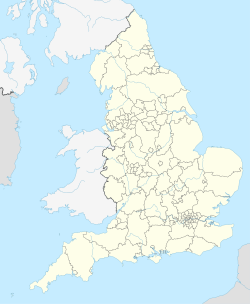History
The theatre was designed by Frank Matcham for Oswald Stoll, and opened on 16 December 1912. It has been designated by English Heritage as a grade II listed building. [1] An important feature of the theatre when it opened was a huge water tank at the front of the stage, which could be filled with 100,000 gallons (450,000 litres) of water. Along with the tank was a large protective glass screen which could be raised in order to protect the orchestra and those in the stalls. It also has a dome, which can be opened when necessary; however since air conditioning has been installed it is rarely opened.
The theatre survived World War II, but less than three years after it ended, a fire destroyed the stage, though not the auditorium. The theatre reopened about 10 months later.
American musician Eddie Cochran played his final show here, in 1960, and was killed in a road accident only hours later, in Chippenham, Wiltshire. Also George Formby played his last performance at the theatre on 14 January 1961.
The theatre plays host to many top shows, such as Phantom of the Opera , Miss Saigon , Cats , Les Misérables , Blood Brothers , Wicked and Of Mice and Men . This is due to the size of its stage, which is one of the largest outside London. In addition to large musicals it is also a venue for comedians such as Russell Howard, Frankie Boyle, Ricky Tomlinson and Lee Mack, as well as children's shows such as Winnie the Pooh Live, and regular pantomime shows of which regularly involve recurring headline performer Andy Ford. [2] The Bristol Hippodrome has strong links with many shows that frequently appear there, such as the Welsh National Opera.
In 2012, the theatre celebrated its centenary with a show called Thanks for the Memories, staged by amateur groups Bristol Light Opera Club and Bristol Musical Youth Productions.
This page is based on this
Wikipedia article Text is available under the
CC BY-SA 4.0 license; additional terms may apply.
Images, videos and audio are available under their respective licenses.







